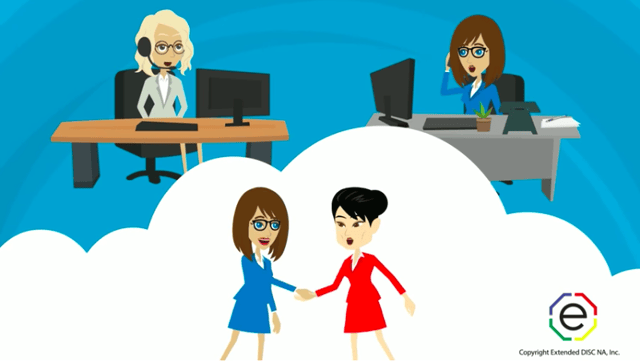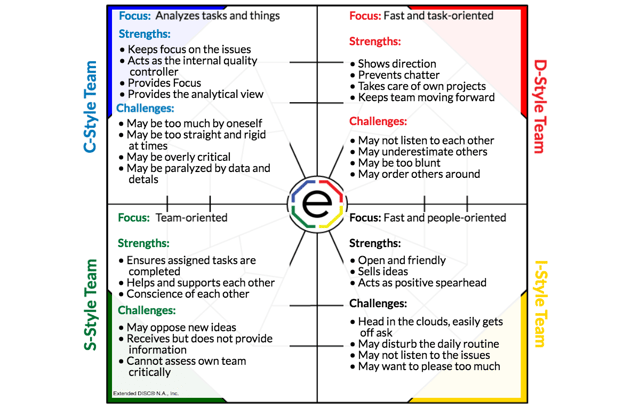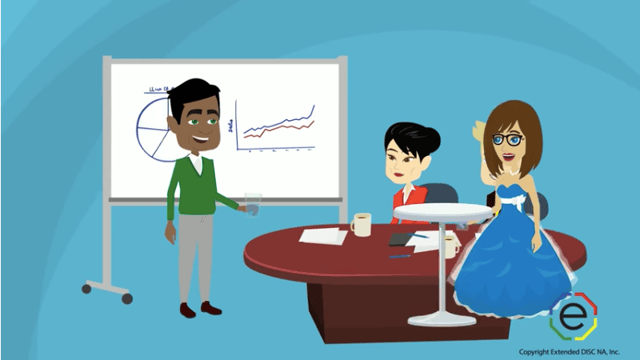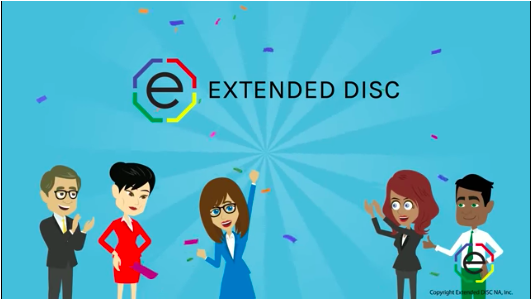It’s tough to pull together teams at work without some planning, introspection and information about how the individuals you are pulling together think, work and feel.
In many cases, the workplace may be all they have in common. Learning more about what makes the individual members of your team behave the way they do can help you give everyone the tools and support they need to come together as a cohesive group.
 Your team could be comprised of folks who share the same general space, but who perform different tasks and have different personality types. Giving them the support they need and recognizing them as individuals can certainly help everyone pull together, but how can you tell who needs support, who needs to talk things out and who simply wants to be left alone to complete tasks in peace?
Your team could be comprised of folks who share the same general space, but who perform different tasks and have different personality types. Giving them the support they need and recognizing them as individuals can certainly help everyone pull together, but how can you tell who needs support, who needs to talk things out and who simply wants to be left alone to complete tasks in peace?
DISC can Help
DISC assessments at work can help you gain a better understanding of the unique individuals that make up your team and help you figure out what their communication, interaction and workplace preferences are. Once you have a better understanding of how your team members think, you’ll know what to do to support them and help everyone pull together as a functioning team. The information obtained from a DISC assessment can have a profound impact on your work space and help a group that is together simply because they work in the same location really become a team.
What is DISC?
 A DISC assessment can help provide insight into your team member’s natural strengths and weaknesses and give you a good understanding of their personality and approach to life. DISC can help you support your team, give them the tools they need to work well together and provide you with creative ways to coach individuals and resolve conflicts.
A DISC assessment can help provide insight into your team member’s natural strengths and weaknesses and give you a good understanding of their personality and approach to life. DISC can help you support your team, give them the tools they need to work well together and provide you with creative ways to coach individuals and resolve conflicts.
The DISC assessment is fast and easy to take and has less than 30 questions; the insights benefit both the individual and the management team trying to create a successful, harmonious workplace. Each individual is assessed based on a variety of factors and sorted into one of several categories. While each of us has a mixture of each type of personality, one is usually stronger than the others. The DISC personality types are:
D for Dominant; D types are usually direct, high achieving and can be intimidating to others
I for Influential: I style is intuitive, friendly and inspires others
S for Steadiness: S team members are sincere, supportive and patient
C for Compliance: C types are cautious, consistent and analytical
Using DISC for Team Building
 Great communication is at the heart of every good team. How well your team acts as a unit and how well they work together is directly impacted by their ability to communicate with, empathize with and understand one another.
Great communication is at the heart of every good team. How well your team acts as a unit and how well they work together is directly impacted by their ability to communicate with, empathize with and understand one another.
A mixed team that brings a wide range of abilities and expertise to the table can become your greatest asset, provided they are able to effectively work together. These strategies can help you use the power of DISC to help your team work together and create a culture that empowers your workers to get things done.
Share the DISC Experience
 Share the DISC Experience: If you are giving or have given DISC assessments, let team members share their styles. Making the underlying reason for doing DISC assessments clear in the first place and relaying that there is no “good” or “ideal” profile can help everyone get comfortable with the idea of sharing. Once your team understands the DISC style of their co-workers, they can adapt their own style to communicate and come together.
Share the DISC Experience: If you are giving or have given DISC assessments, let team members share their styles. Making the underlying reason for doing DISC assessments clear in the first place and relaying that there is no “good” or “ideal” profile can help everyone get comfortable with the idea of sharing. Once your team understands the DISC style of their co-workers, they can adapt their own style to communicate and come together.
If you know the person you are dealing with is a logical C type, then communicating your needs to them rationally and exactly can help things get done. Conversely, that people pleasing S style team member is going to need some interaction and communication and may prefer receiving smaller “to-do” list and being walked through processes before tackling a big job.
Intervene if you Need to
Intervene if you Need to: If you have a mix of high D and more passive personality types, you may need to hold some open sessions or even intervene to be sure everyone is being heard. Both D and I profiles can overpower their more passive peers, leading to resentment and festering issues that interfere with your team.
Communicate in a variety of ways
Communicate in a variety of ways: Some styles, like your C-type employees will love written communication (and actually prefer a bullet list to a conversation), while others will feel neglected if they can’t talk things over in person. Recognize that you may need to convey information in different ways for different team members and change things up to make sure everyone has a chance to feel involved and contribute.
Offer Social Engagement Opportunities
 Offer Social Engagement Opportunities: Some types may shun a gathering, but offering a way or space for your team to interact will make those people focused I and S styles quite happy. Whether you offer a lunch area or lounge, schedule some events or just take time to chat, serving up some social and personal with the business can help everyone work together and support one another.
Offer Social Engagement Opportunities: Some types may shun a gathering, but offering a way or space for your team to interact will make those people focused I and S styles quite happy. Whether you offer a lunch area or lounge, schedule some events or just take time to chat, serving up some social and personal with the business can help everyone work together and support one another.
That high D worker may not want to chat, but she might love a mention on your Slack channel about her most recent achievement and will remember getting accolades from others. Your logical C style may not want to join the office party fun, but a note from you thanking them for their hard work and attention to detail will go a long way towards helping them focus and incorporating them into the team.
Creating Top Performing Teams Using DISC Assessments
Every member of your team has a different approach to work and life; a DISC assessment can provide you with real insight into what makes them tick and allow you to take steps to improve their work experience. When you have an understanding of the fundamental needs each person on your team has, you are far better equipped to support them and help everyone come together and work as a functional team.
Contact us to get the insights you need to create a dynamic, top performing team at work; we’re here to help with all your DISC related needs and questions!

